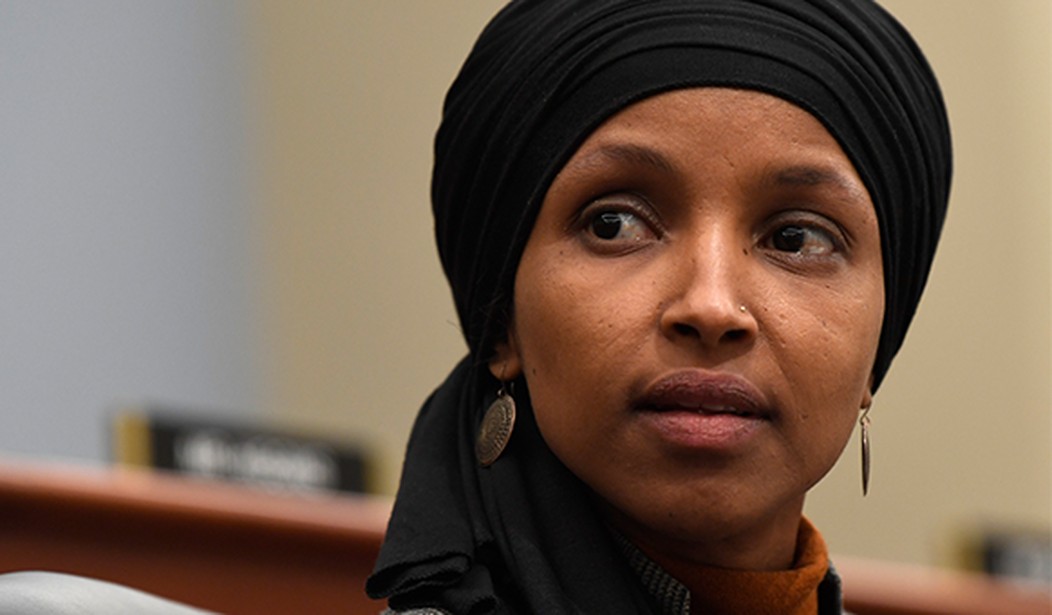Democrats nationwide had already sounded retreat on “Defund the Police,” but Minneapolis’ city council had doubled down in an attempt to disband their police department. Rep. Ilhan Omar campaigned hard in her district on the charter amendment proposal, as did her predecessor and now Attorney General Keith Ellison, not to mention the city council members who pushed it.
The result? Backfire — in a big way:
Minneapolis voters on Tuesday rejected a proposal to replace the Minneapolis Police Department, crushing the hopes of supporters that outrage over the killing of George Floyd would lead to a historic experiment in transforming public safety. …
While supporters insisted police would still be part of the department, opponents of the charter change hammered on themes that echoed in voters’ reasons for saying no on question 2: Who’s going to answer 911 calls? What’s the plan for keeping the city safe?
Voters opposed the amendment by a 12-point margin, well short of the 51% needed to pass. The failure of the ballot question came as one of its most outspoken opponents, Mayor Jacob Frey, held a commanding lead in his re-election bid.
That wasn’t Frey’s only apparent victory last night, either. (Minneapolis uses ranked-choice voting for office elections with more than two candidates, which requires more time to conclude.) Also on the ballot was an amendment to the city charter that would create a so-called “strong mayor” for the city by transferring authority from the council to Frey. While the gap on this question was narrower than on the abolish-the-police Question 2, it still passed by about five points. With the change, council members will no longer have the authority to issue directions to city staff or department heads, but instead will have to work through Frey.
That’s not the only backfire, either. The city council members who backed Question 2 didn’t have a very good Election Night for themselves, either:
Several Minneapolis City Council members who supported the failed policing charter amendment were poised to lose their seats in ranked-choice voting Tuesday.
Phillipe Cunningham of the Fourth Ward had about half the votes of opponent LaTrisha Vetaw. Jeremy Schroeder of the 11th Ward had fallen almost just as far behind challenger Emily Koski.
Jeremiah Ellison of the Fifth Ward was locked in a tight race with multiple competitive challengers. Steve Fletcher of the Third Ward lagged behind top challenger Michael Rainville.
Meanwhile, two others who had pledged to “end” the police department, Council Vice President Andrea Jenkins of the Eighth Ward and Council Member Andrew Johnson had comfortable leads.
It’s unclear yet whether the replacements will be just as unserious as the incumbents they will replace. It’s Minneapolis, after all. But at least for one evening, Minneapolis voters took an election more seriously than usual.
That has to worry Omar and Ellison most of all. Omar cruised to re-election a year ago, but this kind of 12-point rebuke at least suggests that she might be weak enough for a serious primary challenge now. Ellison has to run for re-election next year and counts on his MN-05 power base to help him get past the outstate resistance to his radical agenda. Their attempts to strip Minneapolis of its police department in favor of some gauzy and ambiguous “public safety department” that the city council never actually defined will not be long forgotten by the 56% of Minneapolis voters who finally put a stop to it. And it will cause scales to fall off the eyes of some non-Minneapolis voters in Minnesota next year too in the midterms and state-wide elections.
Outside of Minnesota, this should drive a stake through the heart of “defund the police.” Democrats paid a price at the polls last year in House races for that rhetoric, but this result from Minneapolis suggests that they’ll pay a price all the way down the governmental chain for attempting to abandon law enforcement and triggering a spike in violent crime. As they should.
Update: It’s not just elections and political careers at stake. AJ Kaufman reminds us of what mattered in this election:
The MPD entered 2020 with a $193 million budget, enough to employ 900 officers. After rogue activists pressured city leaders to trim spending, the department began 2021 with only a $164 million budget. Police ranks plunged amid retirements, departures, and disability claims for PTSD, among other issues. Now the total number of active Minneapolis officers has dropped to under 600 from 853 in 2019.
Last year marked the second deadliest in city history, and homicides this year have already outpaced the number committed last year, even though Minneapolis saw a dramatic increase in homicides last summer amid riots that destroyed parts of the city.
Locals breathed a sign of relief with Tuesday’s vote.
“There were 16 carjackings in Minneapolis, almost all at gunpoint, just since Friday,” Dan Becker told PJ Media Tuesday. “Crime in my neighboring town was up 40% last year, and is going to be well beyond that even in 2021. Urban flight, with businesses in the cities still operating at much less than full capacity, and remote work, is sure to continue. People are realizing what a disaster the decades’ long stranglehold of Democrat control of the urban centers and their horrible policies have wrought.”








Join the conversation as a VIP Member